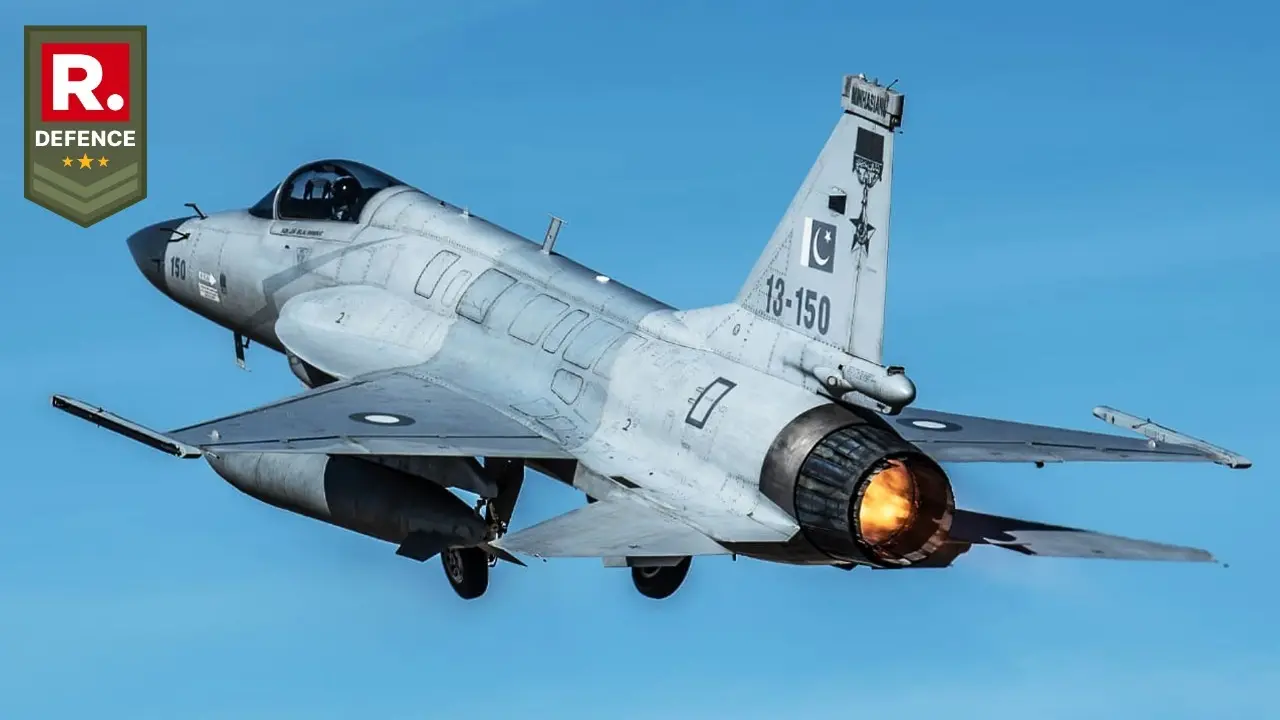Updated 9 May 2025 at 15:12 IST
Chinese Weapons Fuel Pakistan’s Terror Ops; India’s Operation Sindoor Unmasks Nexus
India’s Operation Sindoor has unveiled The Resistance Front (TRF) as a Lashkar-e-Taiba (LeT) proxy, dismantling Pakistan’s narrative that TRF is a homegrown terrorist group.
- Defence News
- 3 min read

New Delhi, India - On May 7, 2025, India launched Operation Sindoor, a comprehensive military strike involving coordinated efforts by the Army, Navy, and Air Force, targeting nine terror camps across Pakistan and Pakistan-occupied Kashmir (Pok). These camps, linked to Lashkar-e-Taiba and Jaish-e-Mohammed, were implicated in the April 22 Pahalgam terrorist attack that claimed the lives of 26 Hindu tourists. Precision missile strikes and kamikaze drones neutralised over 70 terrorists, severely degrading the operational capabilities of these terror groups.
India emphasised that its strikes targeted only terrorist infrastructure, deliberately avoiding Pakistani military or civilian targets. This calculated restraint underscored India’s commitment to maintaining regional stability while holding cross-border terror networks accountable. The operation also highlighted the growing threat posed by Pakistan’s terror proxies, allegedly backed by Chinese military support.
Pakistan’s JF-17 Downed; India Challenges Chinese Arms Reliability
Simultaneous with Operation Sindoor, the Indian Air Force shot down a Pakistan Air Force JF-17 fighter jet intruding into Indian airspace near Pulwama’s Pampore. The JF-17, co-developed by China’s Chengdu Aircraft Corporation and Pakistan Aeronautical Complex, is touted as a versatile multirole fighter. Equipped with advanced avionics and a wide array of air-to-air and air-to-surface missiles, the jet represents a key element of Pakistan’s air capabilities.

However, India’s successful interception of the JF-17 not only dealt a blow to Pakistan’s military pride but also undermined China’s strategic ambitions in the region. According to military experts, the incident exposes critical vulnerabilities in Chinese military hardware, raising questions about the quality and effectiveness of Chinese-made fighter jets, drones, and missile systems.
Advertisement
China-Pakistan Arms Nexus: A Threat to Regional Peace?
Pakistan’s military reliance on Chinese arms has surged in recent years, with Beijing supplying 81% of Pakistan’s weapons between 2020 and 2024, as per the Stockholm International Peace Research Institute (SIPRI). These arms include fighter jets (JF-17, J-10CE), drones, surface-to-air missile systems, and battle tanks.
Despite suffering terrorist attacks on its own nationals in Pakistan, China continues to shield Islamabad diplomatically. Critics argue that this duplicity not only emboldens Pakistan to harbour terrorist groups but also fuels instability across South Asia. The arms influx has allowed Pakistan to bolster terror networks in Kashmir, evident in the sophisticated tactics employed during the Pahalgam attack.
Advertisement
Strategic Implications for India and Global Security
India’s Operation Sindoor underscores the urgent need for global scrutiny of the China-Pakistan military nexus. While China arms Pakistan with advanced weaponry, Pakistan simultaneously provides safe havens for terrorist organisations targeting India. This dual-track strategy undermines international counterterrorism efforts and destabilises the region.
The downing of the Chinese-built JF-17 fighter jet is a stark reminder of the fragile alliance between Beijing and Islamabad. It highlights the dangers of unchecked arms transfers to unstable states and the potential fallout on regional security dynamics.
India’s swift military response and the exposure of China’s double standards in supporting Pakistan despite its terror affiliations demand urgent international attention. The ongoing probe into the Pahalgam attack and Operation Sindoor’s strategic implications will likely shape South Asia’s security landscape in the months ahead.
Watch - Operation Sindoor: World Leaders Back India’s Right to Self-Defence After Strike on Pak Terror Camps
Published By : Yuvraj Tyagi
Published On: 9 May 2025 at 15:12 IST
